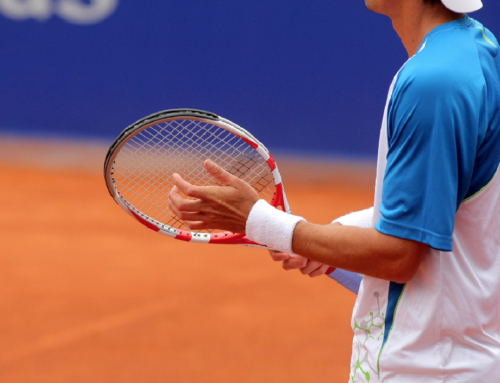Congratulations! That’s the first step. Now it’s time to get ready.
There are many different elements of training for a marathon and this blog will identify some of the main ones that you need to consider. 20 percent of people that sign up to the marathon don’t get to the start line, and we don’t want one of those to be you.
The most common mistake when training for a marathon?
One of the most important considerations when training for a marathon is that it’s not simply about running. Many clients we see at Complete just run and don’t undertake sufficient strength and conditioning (S&C) training to build solid foundations to support their running.
Lepers et al. (2000) demonstrated that distance runners, or participants in endurance sports that require a significant amount of running, appear to gain the most advantage from resistance training. Strength training is thought to increase muscle work efficiency and improve trunk stability, which allows for a higher training volume (Butcher et al., 2007).
Furthermore, Karp (2006) stated that strength training very positively influences many parameters that are correlated with running economy. Some of the most important are the ground reaction forces, active hip extension at toe-off, and a high force during a short ground contact, all leading to an increase in energy transfer and stride length.
Additionally, positive effects on running performance have been shown when emphasising plyometric or explosive exercise/rehabilitation (Guglielmo et al., 2009)
Can resistamce training help reduce the risk of injury when training for a marathon?
Yes, resistance training may also have a role in injury prevention, based on the assumption that stronger tissues from resistance training sustain damage less often (Hasegawa et al., 2002).
At Complete, we see many common running injuries usually caused by training errors and/or a lack of strength and conditioning.
Some common running injuries:
- Greater Trochanteric Pain Syndrome (GTPS)
- Iliotibial Band (ITB) Friction Syndrome (Runner’s knee)
- Patellofemoral Joint Pain
- Medial Tibial Stress Syndrome (MTSS)
- Achilles tendinopathy
- Plantar fasciopathy
Most of these conditions can be managed with a course of physiotherapy, which is likely to include education and advice, manual (“hands on”) therapy, and an individualised strength and conditioning programme.
If these conditions don’t respond to physiotherapy, there are other treatment strategies that can be used (depending on the condition) such as shockwave therapy or ultrasound guided injections, both available at Complete.
How to reduce your chances of injury during your marathon training plan
in addition to the advice above, here are 5 tips to help you get through your marathon training.
1. Monitor pain
You are going to experience pain during your training runs, and most of the time that’s nothing to worry about. However, if you start to feel a noticeable increase in your pain in certain areas, you may have to stop running and take 3-4 days off. If you repeatedly try to return to running and the pain persists, then we would suggest that you seek professional advice.
2. Let missed training sessions go
Most clients, when training for a marathon over three or four months, will end up missing a few training sessions (hopefully not too many!). Don’t worry. It is important that you don’t try to make up for missed sessions and squeeze them into your schedule when you should be recovering. Just ‘let them go’ and stick to your running plan.
3. Vary your training
At Complete we believe it is really important to have variety in your training runs. Ideally you should run on a mixture of surfaces, including the obvious road runs, but also trails, paths, and grass. You should also vary the speed that you run at. Your body quickly gets very bored of consistently running on the same terrain at the same pace and it is a real risk factor for injury. Keep it varied!
4. Value recovery
Your body needs time to adapt so that it becomes progressively stronger and performs better in preparation for the race. These adaptations occur mainly on your recovery days (alongside good quality sleep and nutrition). You cannot improve performance and avoid injury without the appropriate recovery.
5. Consider sports massage
Marathon training is very hard work. Therefore, it is worth seeing a sports massage therapist on a regular basis to help you with your recuperation, allowing you and your muscles to feel relaxed and ready for the next part of your training program.
Training for a marathon takes a lot of time, dedication, and effort, with a few aches and pains along with way. If you are having problems with your marathon training or your pain is persisting or getting worse, we would advise you to get professional advice.
For more information or to book a physiotherapy appointment, please call 020 7482 3875 or email info@complete-physio.co.uk
Serious about running? Consider a running clinic.
If you want a more comprehensive overview of your whole running “life” some clients may benefit from attending our Running Clinic.
The Running clinic involves a much more detailed evaluation of training history and training loads, while understanding your running goals and targets. There will be a full clinical screening/assessment of your lower limbs along with a treadmill-based assessment of running technique/form. This will result in clients having a better appreciation of running technique/form and a strength and conditioning programme to follow.
Reference list:
Hasegawa, H., J. Dziados, R.U. Newton, A.C. Fry, W.J. Kraemer, And K. Häkkinen. Periodized training programmes for athletes. In: Strength Training for Sport. W.J. Kraemer and K. Häkkinen, eds. Oxford: Blackwell Science, 2002. pp. 69–134.
Don’t let pain hold you back, book now!




